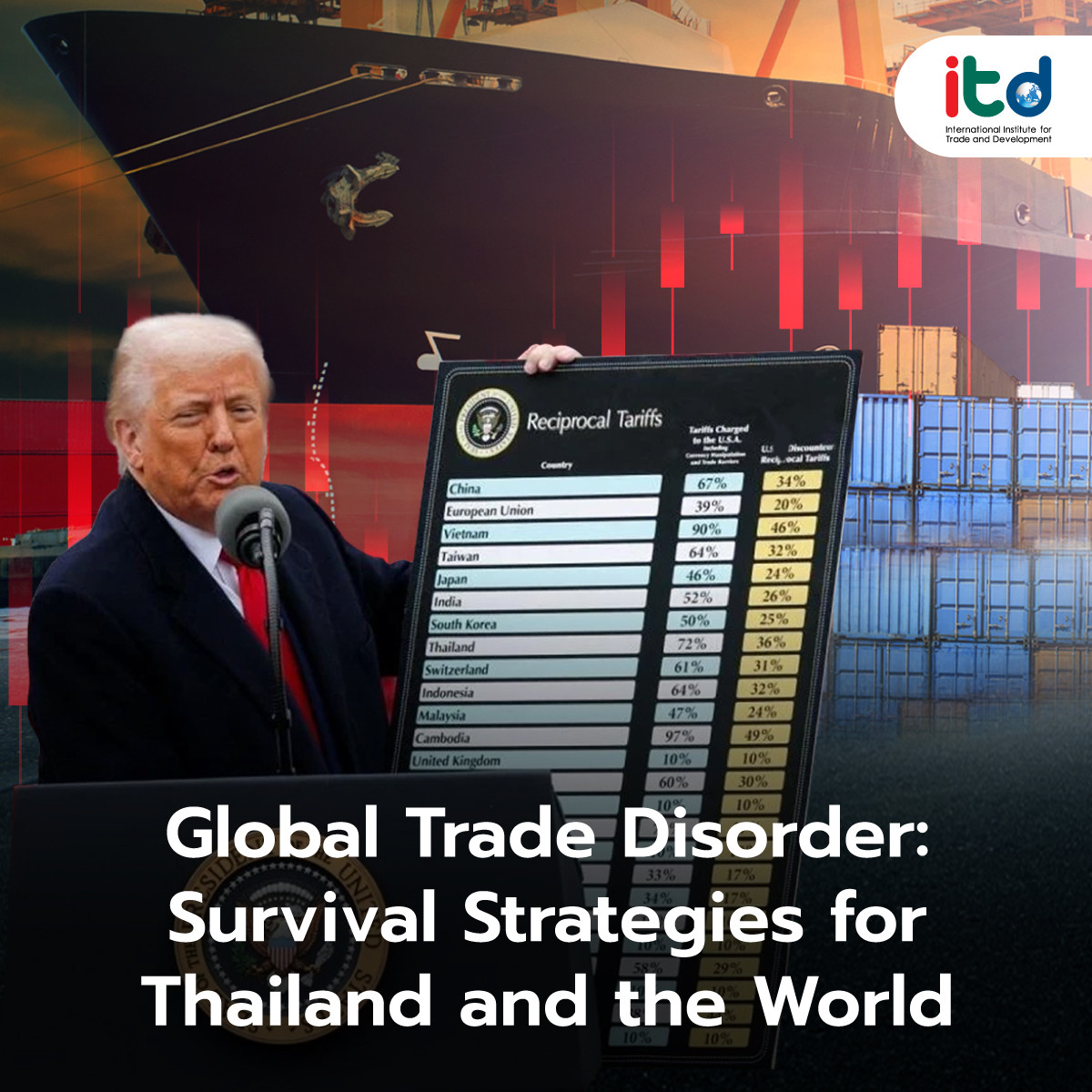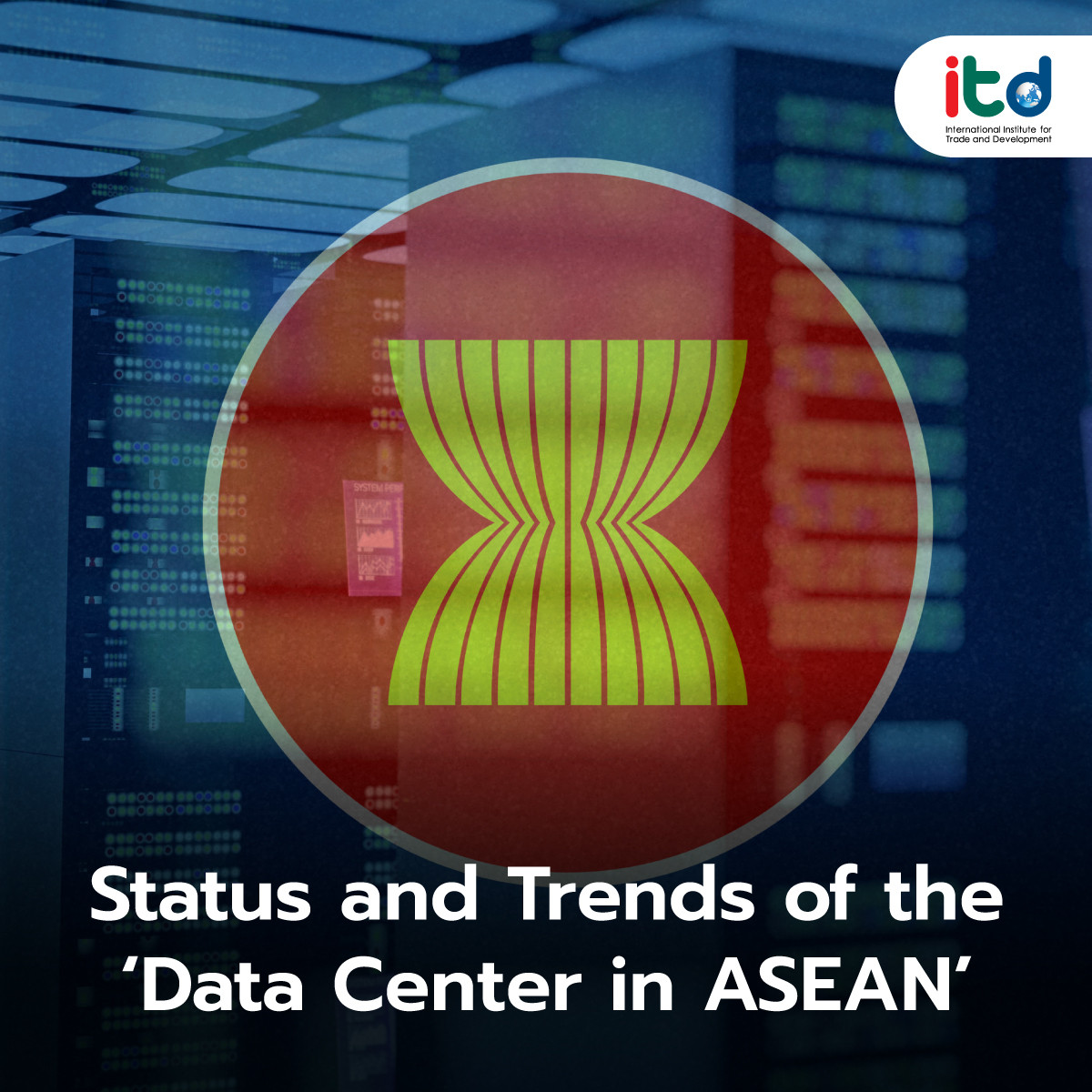About Documents
Over the past few decades, we have become familiar with Global Value Chains (GVCs), which integrate various countries into the global capitalist system. Since the 1980s, ASEAN has been a key region embracing the relocation of manufacturing bases from different countries due to its low production costs and affordable labour costs. As a result, ASEAN has emerged as a manufacturing hub for major industries such as automobiles and electronic equipment.
However, data from the Asian Development Bank (ADB) indicates that traditional supply chains have been challenged by the rapid development of high-value technologies such as artificial intelligence (AI), cloud computing, and automation systems. As a result, the advantage of low labor costs is no longer sufficient for maintaining a competitive edge as a manufacturing base for these industries. Instead, the main attractions for investment have shifted towards the readiness of skilled human resources and the presence of a conducive environment for production and services in these advanced technology sectors.
Additionally, reliance on being a production base in Global Value Chains (GVCs) for traditional industries, such as internal combustion engine vehicles and electronic devices, is likely to face increasing challenges. The automotive industry is shifting its focus towards electric vehicle technology, which results in the elimination of many parts used in internal combustion engines. Furthermore, both the automotive and electronics industries are increasingly adopting automation systems, which heavily rely on semiconductor chips.
Recently, there has been a surge of investment from global technology companies flowing into ASEAN. Major players such as Microsoft, Google, Nvidia, and ByteDance have announced plans to invest in countries like Malaysia, Indonesia, Singapore, and Vietnam. ASEAN has benefited from the ongoing geopolitical tensions between the United States and China, which have prompted these technology companies to relocate their production bases to diversify their risks. This influx of investment underscores ASEAN’s growing importance as a strategic hub for technology and innovation in the global market.
The investments by these technology companies reflect ASEAN’s potential to become an integral part of the Global Value Chains (GVCs) for new and emerging technologies. This shift presents a significant opportunity for ASEAN countries to generate increased revenue. These investments are expected to lead to the creation of high-quality jobs, fostering a more skilled workforce and contributing to higher incomes for employees in the region. As a result, ASEAN stands to benefit not only economically but also in terms of technological advancement and enhanced global competitiveness.
However, a significant challenge in preparing to become a high-tech production base is the need for a highly skilled workforce. Many ASEAN countries are actively striving to enhance the knowledge and capabilities of their populations through various policies and initiatives. For example, Singapore has implemented the SkillsFuture SG program, which aims to provide lifelong learning opportunities and skill development for its citizens. Malaysia has introduced the National Semiconductor Strategy, focusing on creating highly skilled engineers for the semiconductor industry. Similarly, Indonesia has launched the Prakerja program, designed to improve job skills and employability. These efforts reflect the region’s commitment to building a competent and competitive workforce capable of supporting advanced technological industries.
For Thailand, participating in the Global Value Chains (GVCs) of new technologies is a crucial test to determine whether the country can maintain its position in modern production chains. In recent years, Thailand’s key industries have faced significant challenges from various technological advancements. For instance, the Hard Disk Drive (HDD) industry, once a cornerstone of Thailand’s tech manufacturing sector, is being increasingly replaced by Solid-State Drives (SSD), which offer superior performance and reliability. Similarly, the automotive industry is experiencing a paradigm shift with the rise of electric vehicles (EVs), which have fewer components than traditional internal combustion engine vehicles. This transition is inevitably affecting manufacturers within these component supply chains, compelling them to adapt or risk obsolescence.
Author:
Mr. Bhuchis Phoompakvan
Researcher
International Institute for Trade and Development (Public Organization)
www.itd.or.th
Publication: Bangkok BIZ Newspaper
Section: First Section/World Beat
Volume: 37 Issue: 12666
Date: Wednesday, Jun. 19, 2024
Page: 8 (left)
Column: “Asean Insight”






